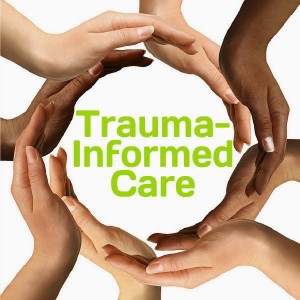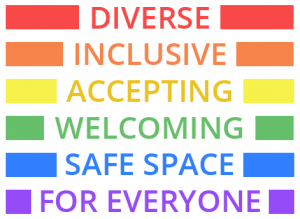Services
Trauma-Informed Services
What is Trauma-Informed Care?  Most individuals seeking public behavioral health services and many other public services, such as homeless and domestic violence services, have histories of physical and sexual abuse and other types of trauma-inducing experiences. These experiences often lead to mental health and co-occurring disorders such as chronic health conditions, substance use (misuse, abuse, dependence), eating disorders, and HIV/AIDS, as well as contact with the criminal justice system.
Most individuals seeking public behavioral health services and many other public services, such as homeless and domestic violence services, have histories of physical and sexual abuse and other types of trauma-inducing experiences. These experiences often lead to mental health and co-occurring disorders such as chronic health conditions, substance use (misuse, abuse, dependence), eating disorders, and HIV/AIDS, as well as contact with the criminal justice system.
When a human service program takes the step to become trauma-informed, every part of its organization, management, and service delivery system is assessed and potentially modified to include a basic understanding of how trauma affects the life of an individual seeking services. Trauma-informed organizations, programs, and services are based on an understanding of the vulnerabilities or triggers of trauma survivors that traditional service delivery approaches may exacerbate, so that these services and programs can be more supportive and avoid re-traumatization.
What are Trauma-Specific Interventions? Trauma-specific interventions are designed specifically to address the consequences of trauma in the individual and to facilitate healing. Treatment programs generally recognize the following:
 The survivor’s need to be respected, informed, connected, and hopeful regarding his or her own recovery
The survivor’s need to be respected, informed, connected, and hopeful regarding his or her own recovery- The interrelation between trauma and symptoms of trauma (e.g., substance use, eating disorders, PTSD, dissociation, depression, anxiety)
- The need to work in a collaborative way with survivors, family and friends of the survivor, and other human services agencies in a manner that will empower survivors and clients
Scheduling of Sessions. We believe that our therapy clients should not have to wait to see their therapist after they arrive for their scheduled appointment (whether in-person or via telehealth). Therefore, we schedule 60 minutes between therapy sessions. This allows us to meet with clients as soon as they arrive, whether or not they are a few minutes early or late. (We do ask that clients call prior to the session to inform the therapist of late arrival.) If a client needs more time at the end of the session to achieve affect regulation (i.e., feel calm), neither the client or therapist feels rushed to end the session because another client is waiting. In addition, clients are allowed 2 late cancellations per calendar year without charge (i.e., less than 24 hour notice). Late cancellation fees are charged when there are 3 or more late cancellations per calendar year). Fees are charged for all “no shows” to a scheduled session. (Exceptions to the late cancellation and “no show” fees are if the situation was beyond the client’s control. Documentation of reason may be required to waive the fee.) Refer to the Fees & Insurance page of this website for more informaiton.
*Source of first two paragraphs: SAMHSA






